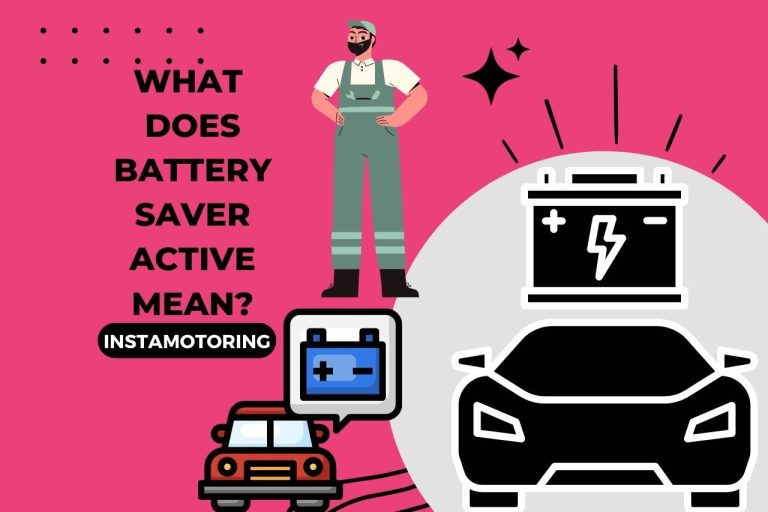How Hot Do Brake Calipers Get? Unveiling the Temperature Secrets!
Usually, brake calipers do get heated up due to friction, and also the temperature can increase to varying degrees depending on the different reasons. How hot do brake calipers get? Under extreme conditions, brake calipers can get temperatures about 250° C (500° F) or higher. Though the brake calipers can withstand normal temperatures easily, it is harder to withstand these high temperatures. That heat can damage the internal components of the vehicle. So, in this article, let’s learn about how hot brake calipers get, the causes, and prevention ways for it.
Is It Normal for Brakes to Be Hot?
Yes. Of course! The brakes do get hot. The brake system works by creating friction in the vehicle’s movement when we step on the brake pads. So, that means it generates heat energy from the kinetic energy, or you can say that the brake system converts kinetic energy into heat energy. When the heat energy is generated, you all know that the objects get heat. Therefore, it is completely normal for brakes to be hot.
How Hot Do Brake Calipers Get?
Normally they reach approximately 125° C (257° F) of temperature. But under extreme conditions, the brake calipers can get hot at about 280° C (536 ° F). Though brake calipers don’t get heated as much as brake pads and rotors, they also get considerably heated to a certain extent.
The purpose of the brake calipers is to create friction with the help of the rotors. Therefore, they don’t subject to friction directly.
When the driver presses the brake pedal, calipers help the brake pads to press against the rotors. Then when the friction is created through that process, the generated heat will absorb by the brake pads, and it will spread to the brake calipers also. So, under normal conditions, brake calipers do not get heated like brake rotors and pads.
Below are temperature ranges brake calipers can reach under normal and extreme conditions.
- 0° C to 125° C (0° F to 257° F) – These are the normal safe heat conditions for the brake calipers
- 126° C to 166° C (259° F to 330° F) – The temperature of 166° C is likely the edge of the safe heat range. Therefore , it is advised to activate proper ventilation for the brake system at this range.
- 170° C to 232° C (338° F to 257° F) – At this temperature range, the brake calipers tend to get leaked, and seals can be loosened.
- 232° C to 280° C (450° F to 536° F) – This is the higher amount of temperature range that your brakes can get without harming that much for your vehicle. The brake calipers probably will get damaged at this level, and they need to be inspected and serviced immediately.
Why Do Brake Calipers Get Hot?
There are a few factors that influence the brake calipers to get hot. Let’s see what those are.
Driving Habits and the Driving Area
Driving habits are a major fact that can cause changes in the brake system. It can also affect the temperature of the brake calipers. Constant braking while driving at a higher speed generates more heat when compared to normal driving habits and braking gently. Also, frequent braking, like in traffics and in the mountains, also influences generating heat while decelerating constantly.
Material
The material that the brake pads and brake calipers are made of also is a factor in influencing the temperature rising. Mostly, brake pads and calipers are made out of cast iron. They contribute to absorbing and spreading heat efficiently. Therefore, it is better if your brake pads and calipers have made out of a material that has both friction and heat resistance properties.
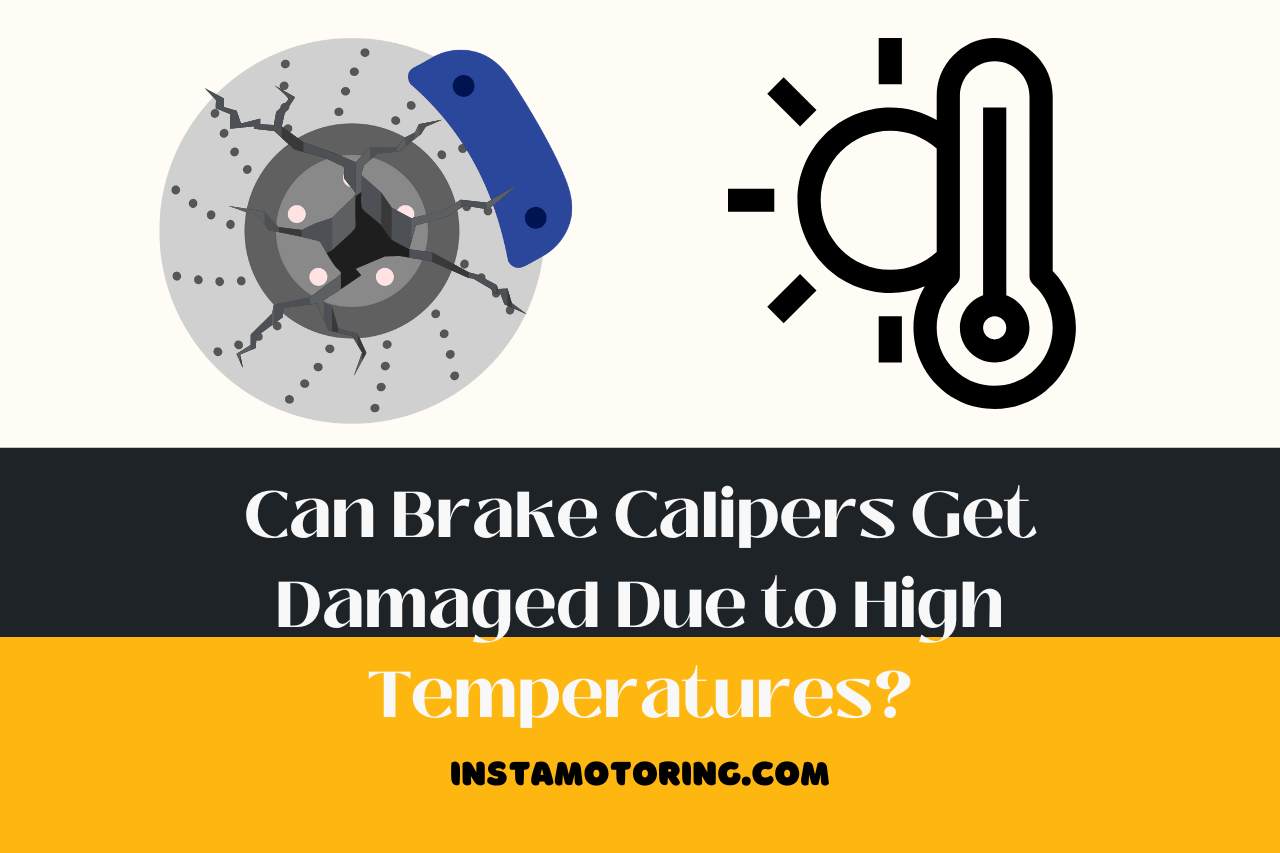


Can Brake Calipers Get Damaged Due to High Temperatures?
Yes. The brake calipers can get damaged due to higher temperatures. The efficiency of the performance of the brakes can be affected by this.
The power of friction and brake system will be reduced, causing brake fade. And it can lead to a complete brake loss.
This should be strictly concerned as it will have a risk of safety issues, including getting into accidents.
Also, the brake calipers and brake pads can wear. The brake calipers tend to get leaked, and seals can be loosened when they are subjected to higher temperatures.
It will cost you higher, and the parts of the brake system will have to replace. Moreover, your life will be at risk also.
The extreme conditions in heating up brake calipers and the other parts in the brake system will lead them to catch fire also!
What Can Happen If the Brakes Get Too Hot?
When the brakes get too hot, the heat generated will transfer and spread to the brake calipers and rotors also. This may reduce the efficiency of the brakes, and it will bring risks to your life as well.
When the performance of the brake system is reduced in efficiency, it will cause diminished friction. This can lead to a complete loss of braking.
Also, the seals of the brake calipers will leak. It is not a very good sign. The brake calipers will get damaged, wear and tear.
It will not contribute to the brake system functioning properly. Additionally, if the brakes get too hot, it also can lead to occurring fires in the brake system as well. This will be a big threat to the lives and the vehicle.
How Do I Know If My Brakes are Too Hot?
Here are some signs that will help you to identify if you’re brakes are too hot.
- Burning smell coming from the vehicle, more like the burning of a carpet.
- Visibility of smoke from the brakes.
- Lighting up of brake lights on the dashboard.
- Creaky and squeaky noises coming from the brakes.
How Do you Cool Off Brake Calipers?
When you witness that your brakes or brake calipers are getting heated, follow the below steps to cool them off.
- Drive gently at a constant speed of about 40mph or less. Avoid using brakes for about five minutes if possible.
- Brake the vehicle to stop it without using the accelerator. Then use the parking brakes to park it and let the vehicle cool down for a moment. When using the parking brakes, the drum and the disc brakes of the vehicles will be inactive from the rotors.
- Also, some vehicles have brake system ventilation. Activate them if you have one!
Watch this one,
Video Credits – Babcox Media
You May Also Like
- Both Front Brake Calipers Not Releasing – (Diagnosing and Resolving Issues)
- Can You Resurface Slotted Rotors? (Is It Possible & Worth It)



My name is James, I work as an Automotive Designer with 9 years of experience. I also work as a mechanic and vehicle inspector. I love deciphering complicated car exteriors and interiors and resolving fluid and oil troubles. InstaMotoring.com is here to help you troubleshoot your car with dependable and expert help.


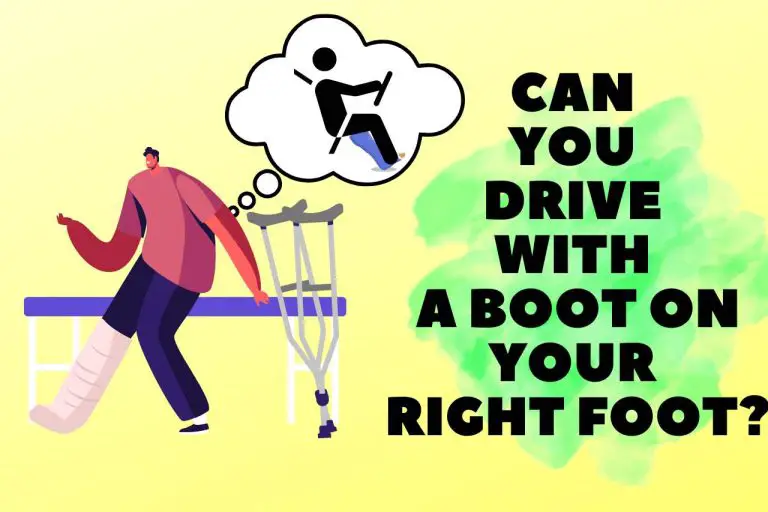

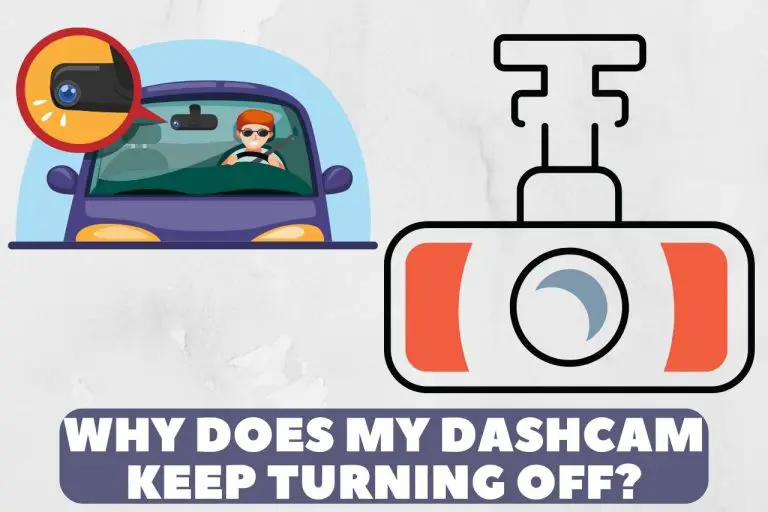
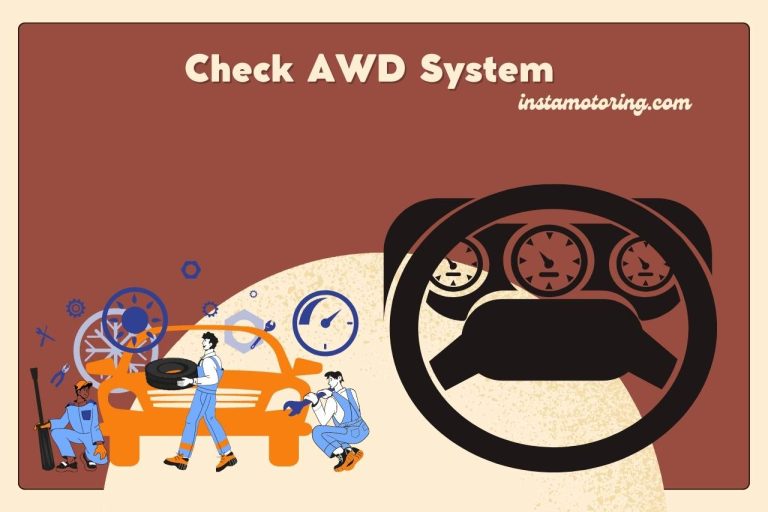
![Is It Illegal to Have LED Lights inside Your Car? – [Know the Rules]](https://www.instamotoring.com/wp-content/uploads/2022/11/is-it-illegal-to-have-led-lights-inside-your-car-768x512.jpg)
